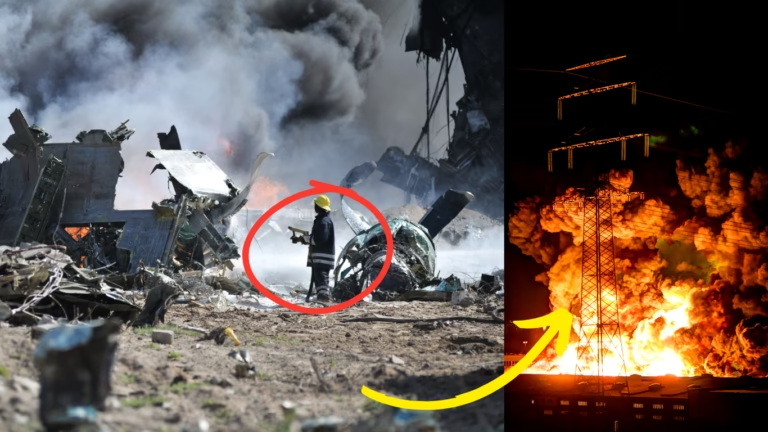

Imagine this Electrical Explosion: a normal day at work, routine maintenance tasks underway, and suddenly, the unexpected happens. A spark ignites in an electric room, wires erupt into a dazzling but deadly display of light and fire, and chaos takes over. This is not a scene from a sci-fi thriller; it’s a real-life incident involving two electrical engineers who narrowly escaped tragedy.
Such events are stark reminders of the double-edged sword that electricity represents—indispensable for modern life but potentially lethal when mishandled or when systems fail.
Let’s explore the dangers of electrical explosions, the causes behind them, and, most importantly, the lessons they leave behind.
What Happened in an Electrical Explosion Video?
In the video that has now captured widespread attention, two engineers entered an electric room for routine inspection. Moments later, a wire sparked, quickly escalating into a full-blown electrical explosion. Fire engulfed the room, and the sound mimicked that of a firecracker factory gone rogue.
Luckily, the engineers managed to escape unharmed, but the aftermath was terrifying. Bright flashes turned day into night, the electric arc explosion unleashed a deafening roar, and the entire scene was reminiscent of a sci-fi disaster.
Watch the Video by Clicking Here
Why Do Electrical Explosions Occur?
Electrical explosions, such as the one in this incident, don’t just happen out of the blue. Let’s look at some of the most common causes:
- Faulty Wiring: Poorly maintained or outdated wiring can overheat and spark unexpectedly.
- Overloaded Systems: Electrical systems designed to handle specific loads can explode if stretched beyond their capacity.
- Neglected Maintenance: Regular inspections and proper maintenance are crucial. Ignoring them can result in catastrophic failures.
- Equipment Malfunction: Defective components, such as transformers or circuit breakers, may fail to contain electrical surges, resulting in explosions.
Recent Posts
The Dangers of Electrical Explosions
The physical and financial costs of electrical explosions can be immense. Here’s what’s at stake:
- Human Lives: High-voltage explosions can cause severe burns, fatal injuries, or even death.
- Property Damage: Fire and electrical bursts can destroy expensive equipment and infrastructure.
- Downtime and Expenses: Repairing the damage and restoring systems can lead to significant delays and financial losses.
This particular incident underscores how vital it is for organizations to have robust emergency protocols. A viewer insightfully commented, “No emergency protocol for this situation? That’s incredibly irresponsible.”
What Can Be Learned from this Electrical Explosion?
This incident serves as a wake-up call for all industries reliant on electricity. Here are three critical lessons:
- Always Prioritize Safety Protocols: Emergency procedures must be clearly defined and regularly practiced.
- Invest in Maintenance: Routine inspections and upgrades to electrical systems are non-negotiable.
- Educate and Equip Staff: Engineers and technicians must be trained to recognize hazards and respond swiftly.
Preventative Measures
Preventing electrical explosions starts with proactive planning. Here’s what can be done:
- Install circuit breakers and surge protectors to handle electrical surges.
- Schedule regular maintenance checks and ensure outdated wiring is replaced.
- Ensure all personnel are equipped with protective gear and trained in emergency response.
- Develop and enforce strict protocols for handling high-voltage equipment.
Electrical explosions, while rare, highlight the critical need for vigilance and preparedness. Whether it’s an electric transformer exploding or a battery failure leading to a fire, the risks are ever-present. By taking the right precautions, we can ensure that the power driving our lives remains a friend, not a foe.
Stay safe and stay prepared!



